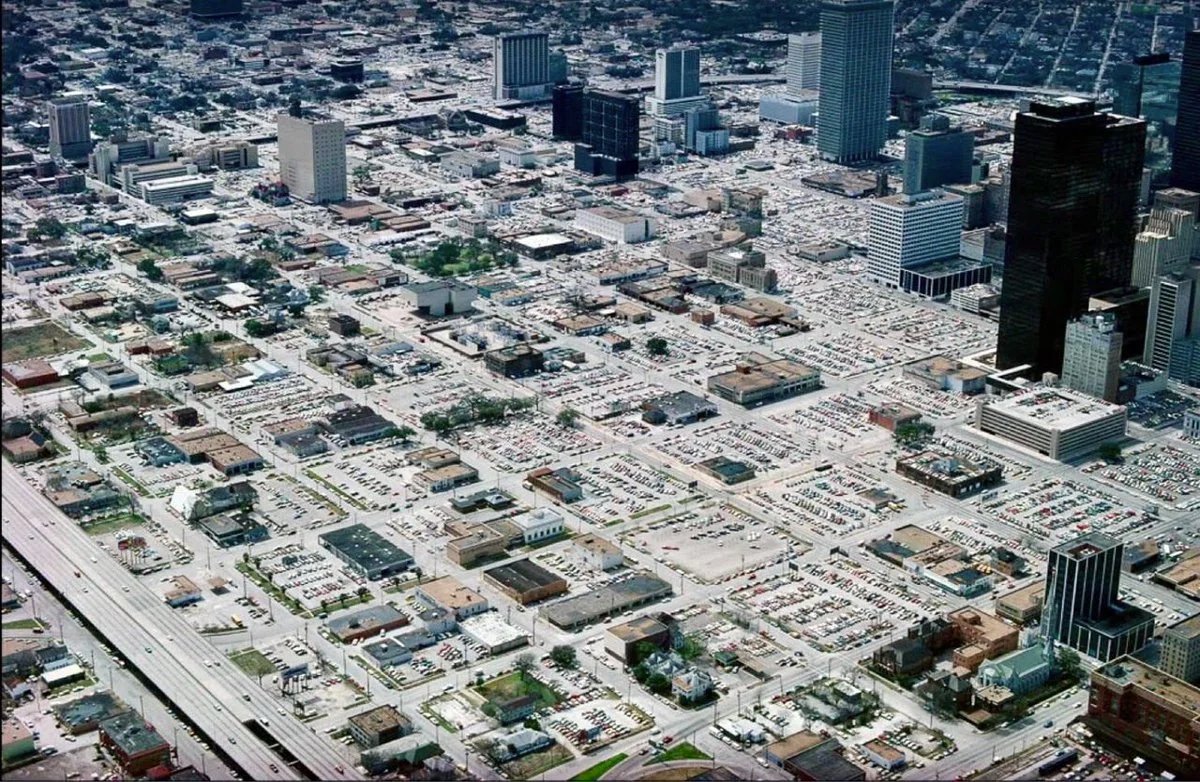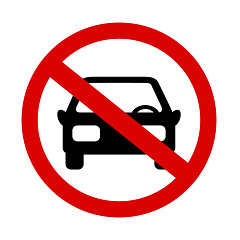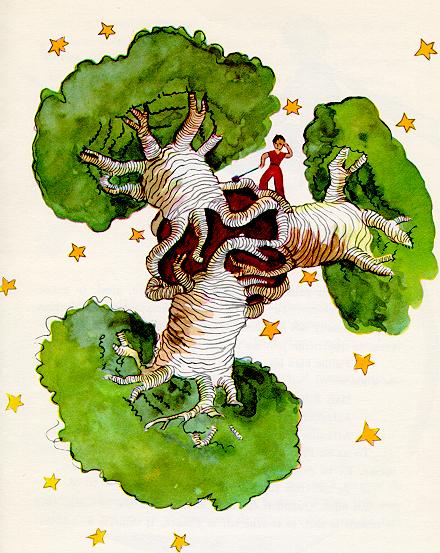- cross-posted to:
- fuckcars@lemmy.world
- fuck_cars@lemmy.ml
- series_of_tubes@sullen.social
- cross-posted to:
- fuckcars@lemmy.world
- fuck_cars@lemmy.ml
- series_of_tubes@sullen.social
cross-posted from: https://sullen.social/post/59233
Really great description of the american sprawl. These issues eat away my soul every single day, and this guy wrote about it in 1973.
Some of my favorite excerpts:
The invention of the personal automobile, and destruction of public transportation, was a triumph of capitalist drug-peddling; suddenly, all at once, everyone’s personal mobility became dependent on a single, new commodity, gasoline. Without it, we are unable to function, since urban sprawl and suburbanization now means we can’t even walk to work if we wanted to.
“The typical American devotes more than 1500 hours a year (which is 30 hours a week, or 4 hours a day, including Sundays) to his [or her] car. This includes the time spent behind the wheel, both in motion and stopped, the hours of work to pay for it and to pay for gas, tires, tolls, insurance, tickets, and taxes .Thus it takes this American 1500 hours to go 6000 miles (in the course of a year). Three and a half miles take him (or her) one hour. In countries that do not have a transportation industry, people travel at exactly this speed on foot, with the added advantage that they can go wherever they want and aren’t restricted to asphalt roads.”
You’ll observe that automobile capitalism has thought of everything. Just when the car is killing the car, it arranges for the alternatives to disappear, thus making the car compulsory. So first the capitalist state allowed the rail connections between the cities and the surrounding countryside to fall to pieces, and then it did away with them.
These splintered cities are strung out along empty streets lined with identical developments; and their urban landscape (a desert) says, “These streets are made for driving as quickly as possible from work to home and vice versa. You go through here, you don’t live here. At the end of the workday everyone ought to stay at home, and anyone found on the street after nightfall should be considered suspect of plotting evil.” In some American cities the act of strolling in the streets at night is grounds for suspicion of a crime.
No means of fast transportation and escape will ever compensate for the vexation of living in an uninhabitable city in which no one feels at home or the irritation of only going into the city to work or, on the other hand, to be alone and sleep.
Have you ever tried to go from Boston to New York by train?
Well yes actually and it was decent. Kind of a weird move to take America’s best connected cities as an example for how bad cars have sabotaged transit when you have the entire rest of the country to make your point lol.
The rest of the article is good. The part about luxury automobiles becoming a universal commodity in advanced economies is very poignant considering I just saw a banana republican argue that communism is when everyone has a private jet. The fact that not all luxuries can be universalized really needs to be hammered into the heads of these people that fetishize growth.
What was the situation in 1973? I don’t think we’re actually in the worst stage of automobilism right now, honestly. I think we’re still in really bad shape in North America, but the worst of it must have been some point between the time Gorz is writing and like 2010. All conjecture, not basing this on anything but impressions from some reading on the topic.
Well, this is 1978 Houston

That’s the city at its worst. It’s slightly better now. I don’t know nearly enough to accurately describe the state of automobile infrastructure in 1973. The year of peak car hell is probably different depending on the city.
Edit: I missed half the point my bad. Trains in the US were hugely in decline and Amtrak was just formed in 1971. Taking a train between those cities may have been awful indeed!




